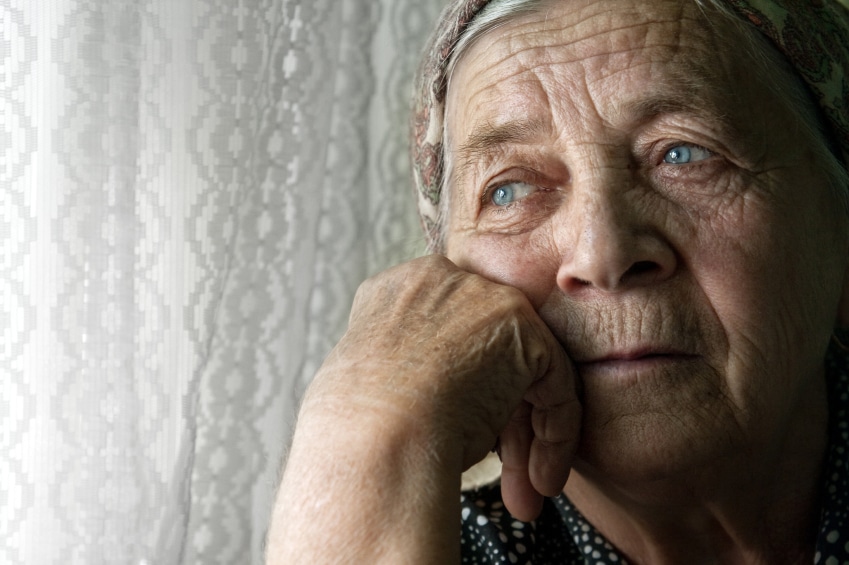
Mental health awareness is especially important during the COVID-19 pandemic. Learn more about mental health issues faced by older adults and what you can do to help in this blog post by Brent P. Forester, M.D., chief of the Center of Excellence in Geriatric Psychiatry at McLean Hospital.
May is Mental Health Awareness Month. Have older adults been overlooked when it comes to mental healthcare, and if so, what is being done to change that?
Because there are shortages of geriatric medicine and geriatric psychiatry specialists, older adults lack access to high-quality mental healthcare. In addition, anxiety and depression increase the likelihood of poor outcomes and higher mortality from other underlying medical conditions. Older adults may experience symptoms of anxiety and depression that are not recognized as mental health conditions by primary care clinicians or family members as these may overlap with common medical problems. For example, symptoms of fatigue, lack of motivation and poor concentration are common in an older adult with heart disease or an underactive thyroid gland. These symptoms may be attributed to those conditions and not due to depression. Some depression symptoms are less likely to overlap with medical conditions such as inability to enjoy pleasurable activities or a wish to die or end one’s life.
Asking about the emotional symptoms of depression in addition to the physical symptoms of depression is really important to determine effective treatments. Another critical factor that prevents timely and accurate recognition of mental health conditions in older adults is ageism, the beliefs that we all may have about older adults based on prior experiences and biases. I’ve heard countless physicians over the years tell their patients, “Well, I’d be depressed too if my spouse died and I was in a skilled nursing facility for rehabilitation after a broken hip.” Ageism gets in the way of thoughtful assessment and treatment of older adults due to preconceived beliefs that are attributed to aging. Depression is never a “normal” part of the aging process.
What is unique about addressing and treating the mental health of older adults compared to younger patients?
Older adults more commonly than younger adults have other medical conditions that can present with similar symptoms as younger adults making the diagnosis more confusing. See the example in question one. Older adults may also more commonly develop cognitive impairment, or dementia, which can lead to a loss of attention and memory and must be accurately recognized to find treatable causes of memory loss and to improve quality of life. As we age, our body’s metabolism slows and our brains become more sensitive to the effects of medications and substances of abuse such as alcohol. Therefore, the choice and dose of medications to treat older adults are different than they are in a younger population.
What are the steps people should take if they are concerned with the mental health of the older adults in their life?
Older adults and their families should be alert for signs of anxiety and depression. This includes changes in sleep and appetite, increased symptoms of anxiety and worry, fatigue, and an inability to focus on pleasurable activities. You can also talk with a primary care physician via telephone or video conference if needed.
You are the director of the Geriatric Psychiatry Research Program at Mclean Hospital. What does your research focus on?
Our research focuses on novel treatment approaches, including cannabinoids and electroconvulsive therapy, to manage behavioral complications of dementia such as agitation, severe anxiety and aggression. We also test potential disease modifying treatments that address the underlying biology of Alzheimer’s disease, specifically beta amyloid plaques and tau tangles. Finally, in our work with older adults suffering from depression and bipolar disorder, we use MRI scanning and longitudinal clinical assessment to better understand the causes of these mood conditions in later life and seek to identify promising new targets for effective treatments.
How has the COVID-19 pandemic increased awareness of mental health issues faced by older adults?
The COVID-19 pandemic adds another layer of behavioral health challenges for older adults. Even before the COVID-19 crisis, older adults faced anxiety and depression due to factors such as social isolation, financial challenges, illness, grief, and loss. Geriatric mental health issues will likely increase due to the COVID-19 pandemic. Although older adults are vulnerable to mental health challenges, the rest of society can learn a lot from older adults, whose stories of resilience can inspire and teach us how to cope during this difficult time.
How can we help older adults combat social isolation, especially during this time of social distancing?
Social distancing is physically disconnecting older adults from their families and friends, who, in normal times, provide older adults with social connection that is required for successful aging. Social distancing is causing an increase in anxiety, depression, fear, social isolation, and loneliness in older adults with preexisting psychiatric illnesses. Many older adults are now isolated at home, and older adults living in nursing home communities or assisted living facilities can no longer see visitors that are so important for providing comfort and support. We can help older adults during this time by encouraging them to ask for help, especially when it comes to using video conferencing to connect with friends and family.
What older adult mental health resources do you recommend?
I highly recommend that you speak with your primary care physician with any change in thinking, mood, memory, sleep, appetite, energy level and attention. Although it is common to fear the results of any medical evaluation and to attribute some of these symptoms to the changes associated with normal aging, identifying a mental health concern early is so very important to maximize the quality of one’s life and to treat underlying conditions that are sometimes challenging to identify as we age.
The American Association for Geriatric Psychiatry, the American Geriatrics Society and the American Hospital Association offer resources on mental health issues in older adults.






